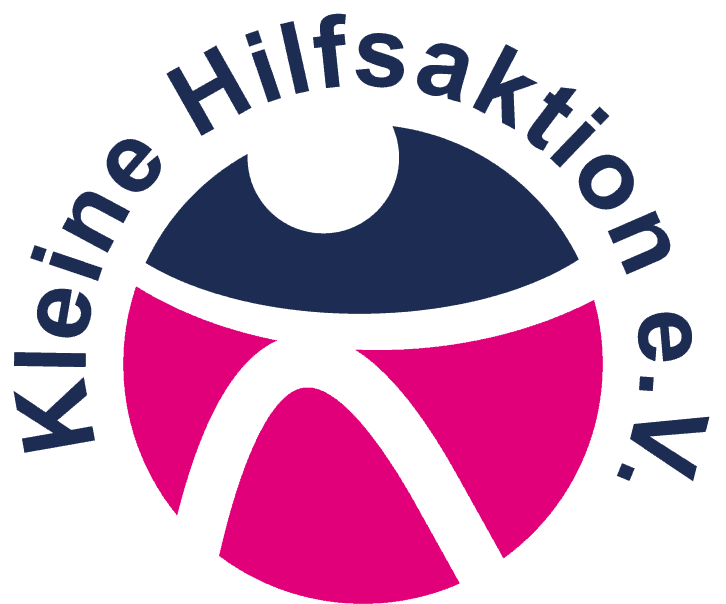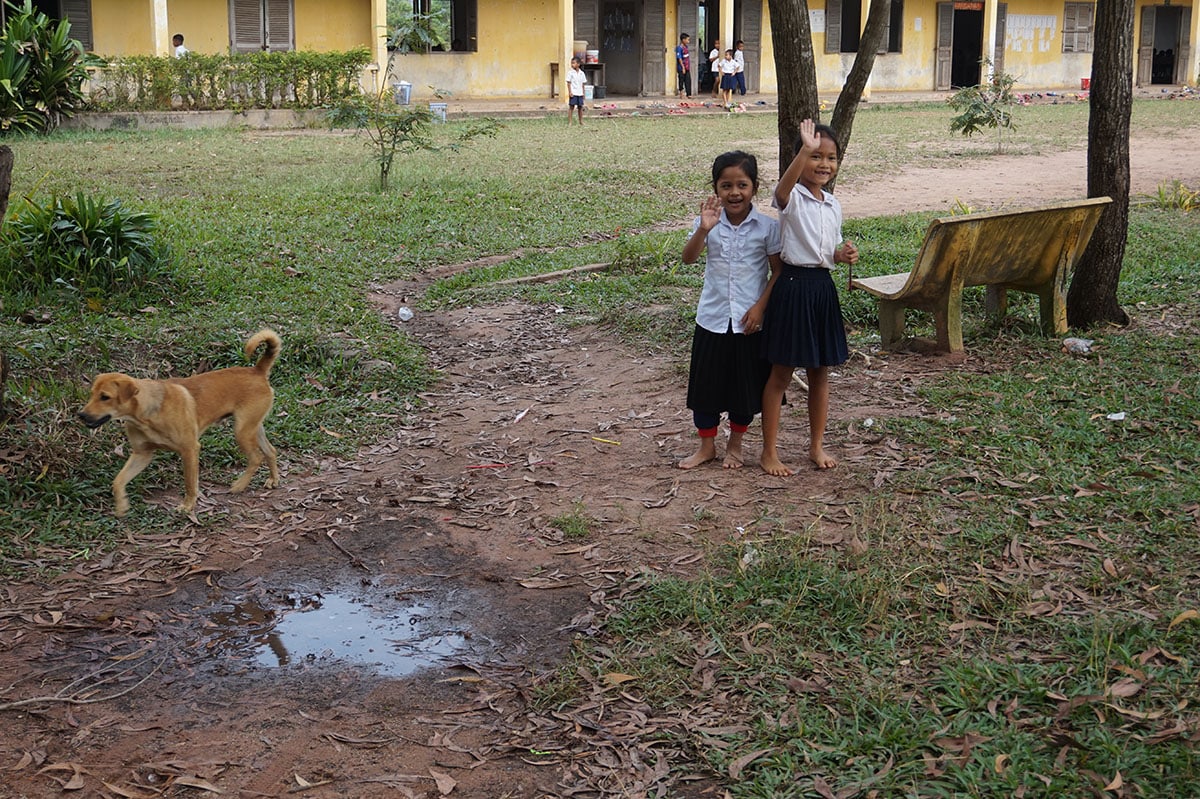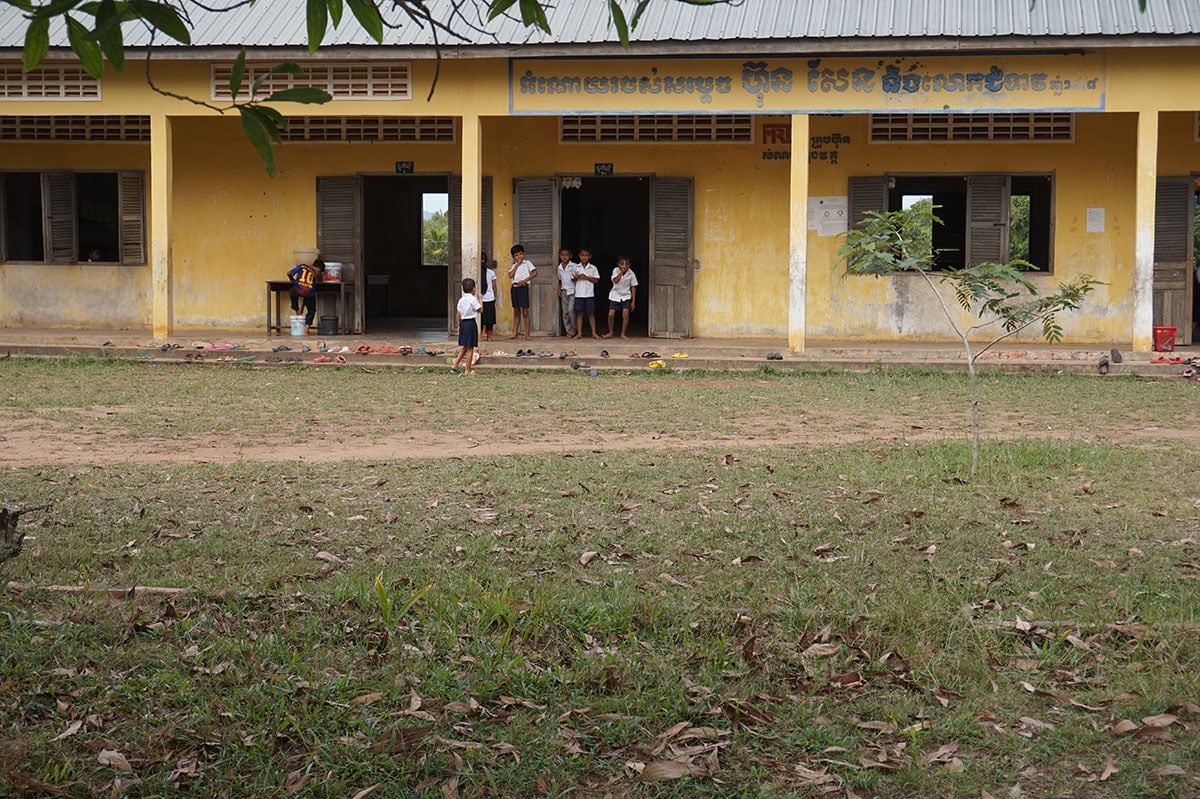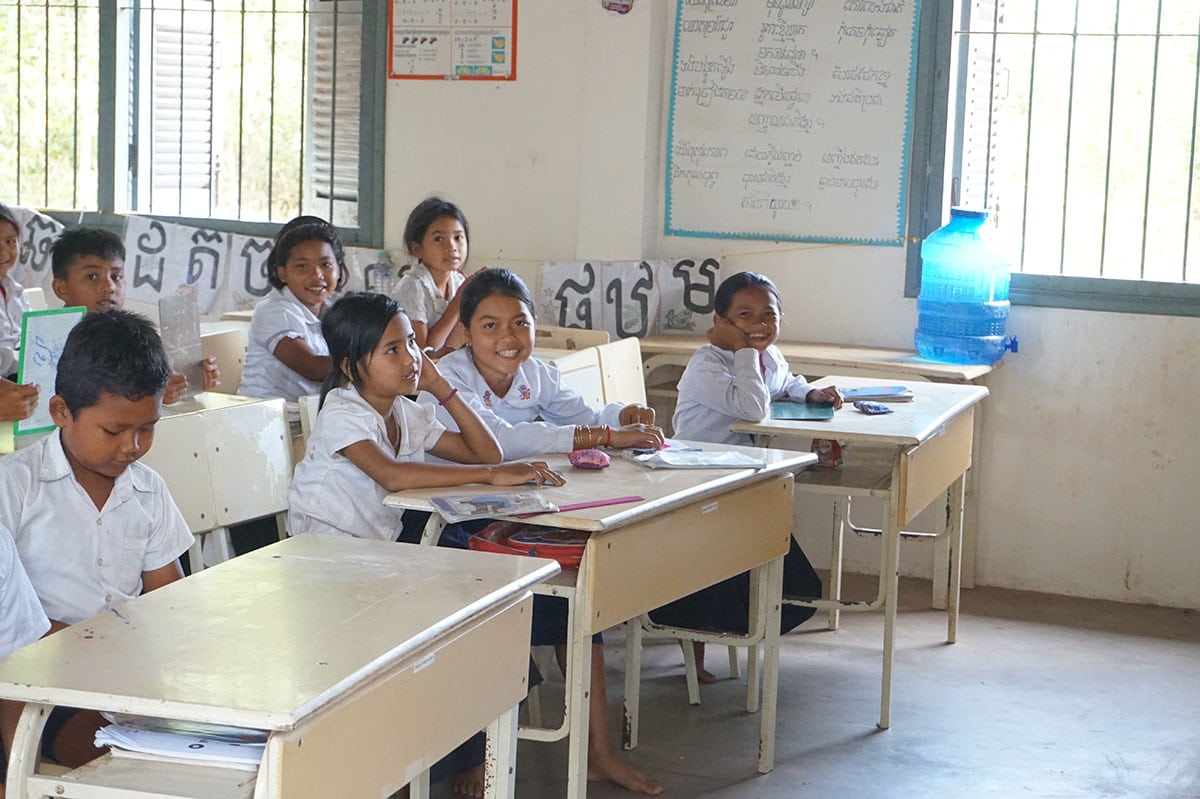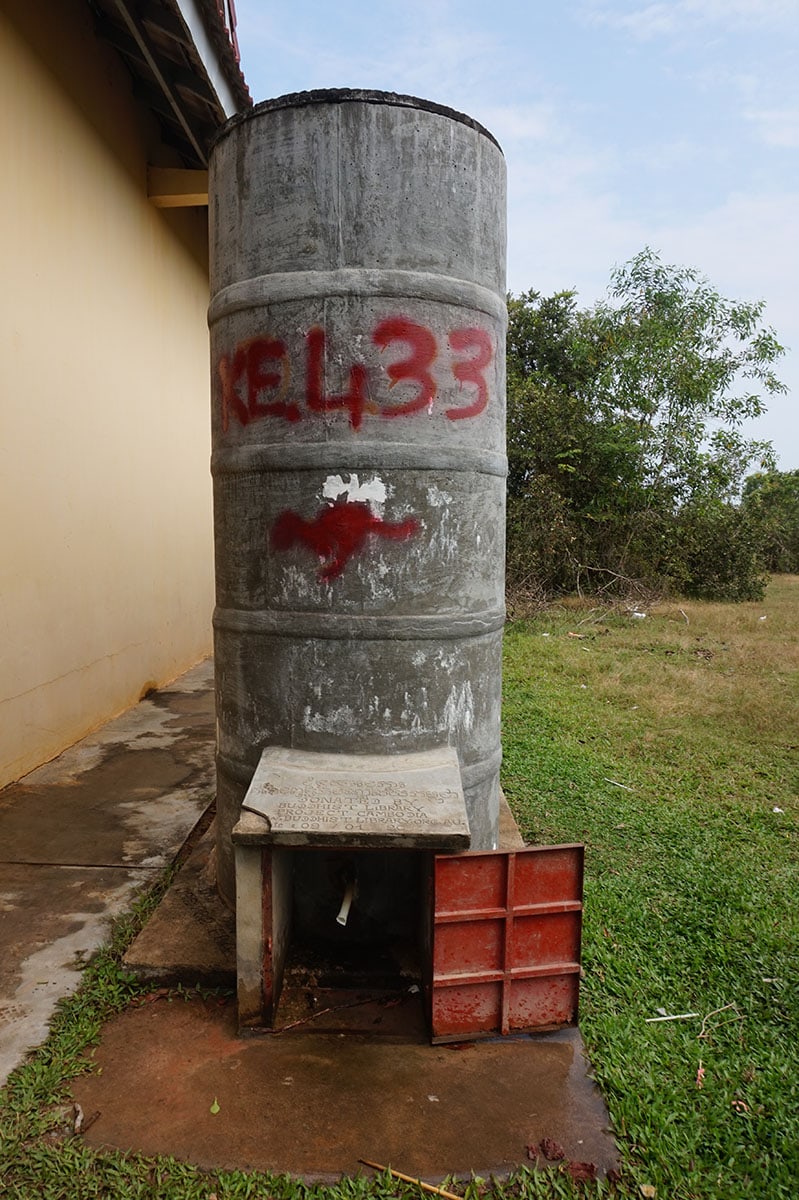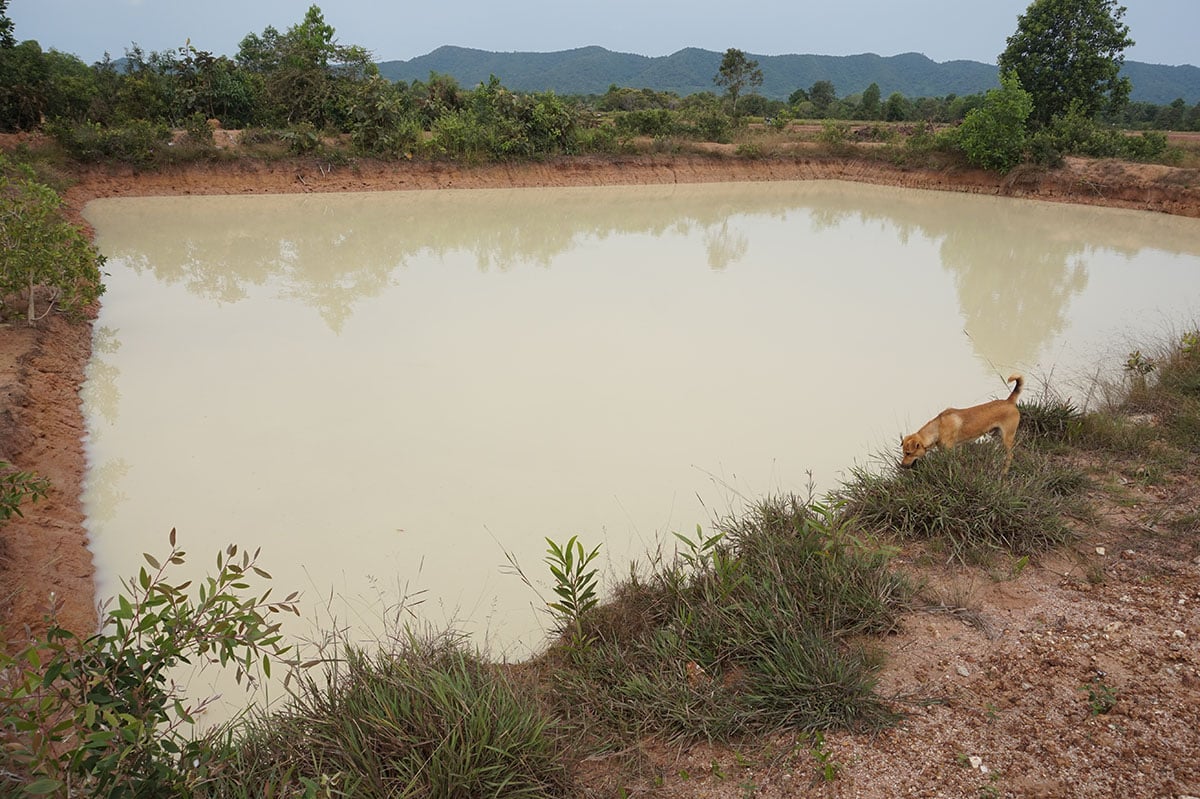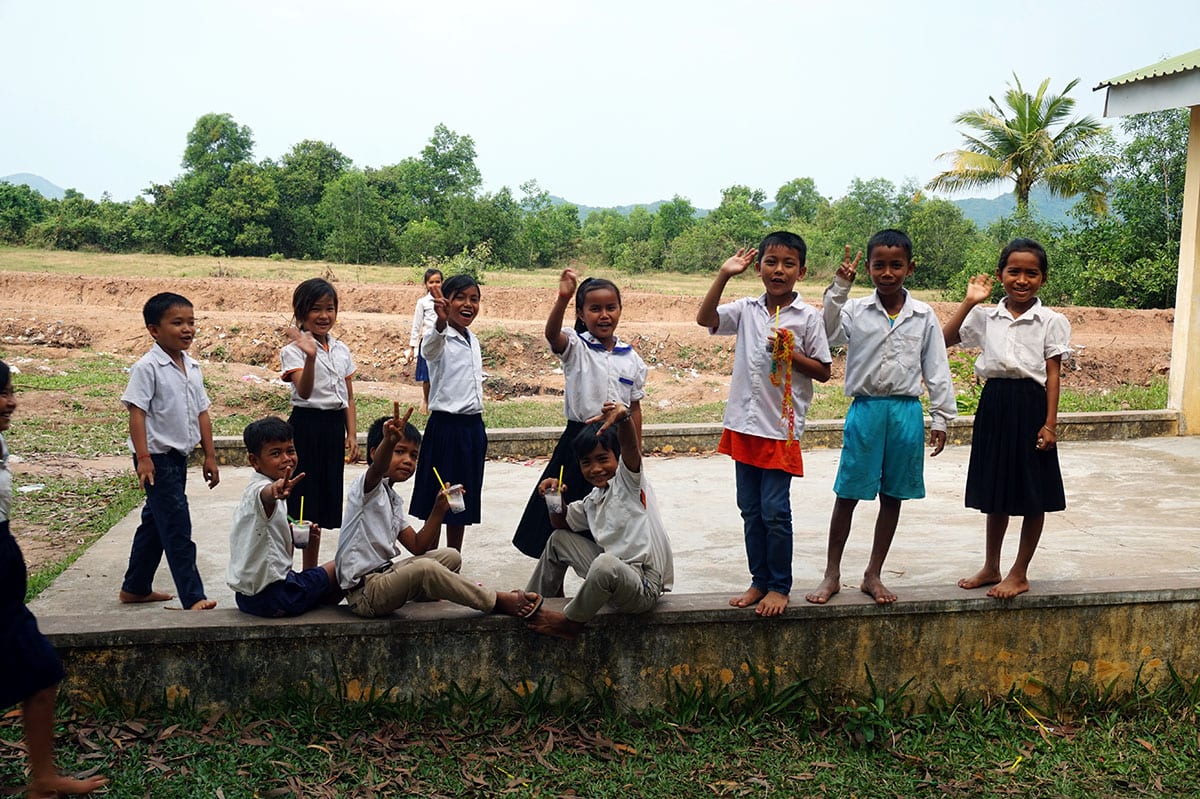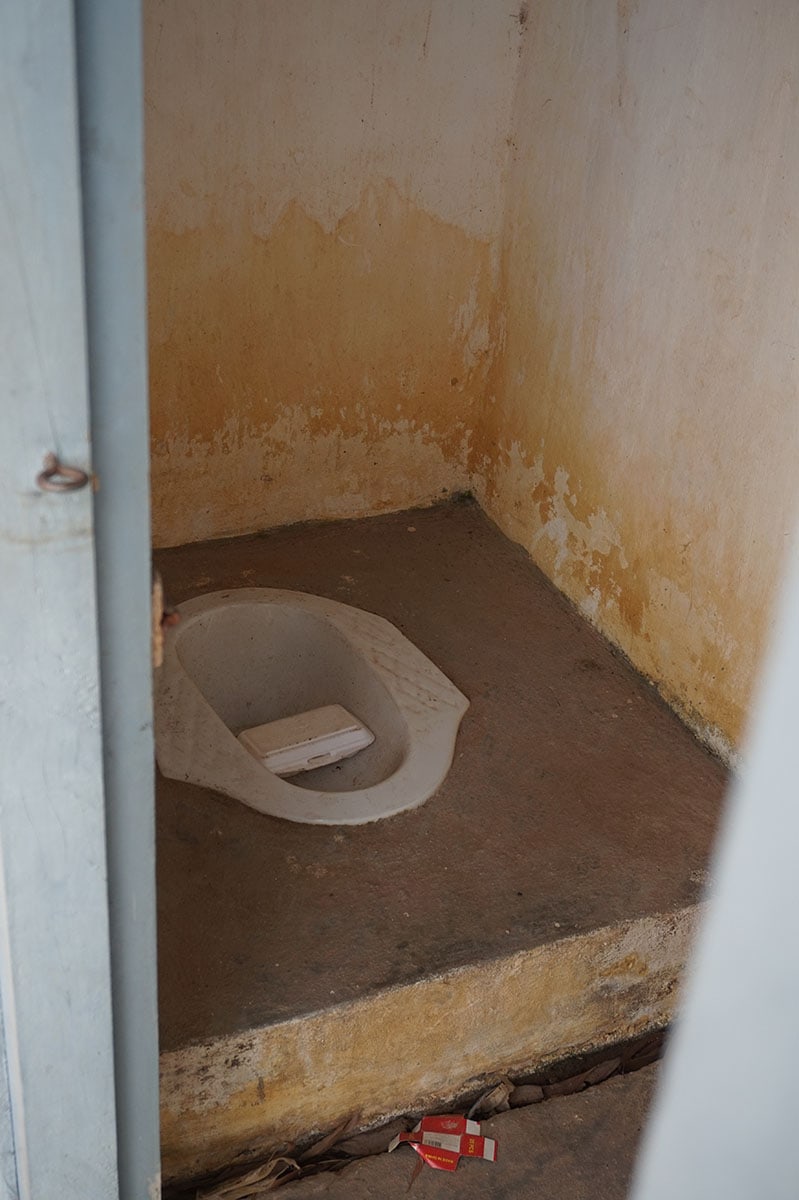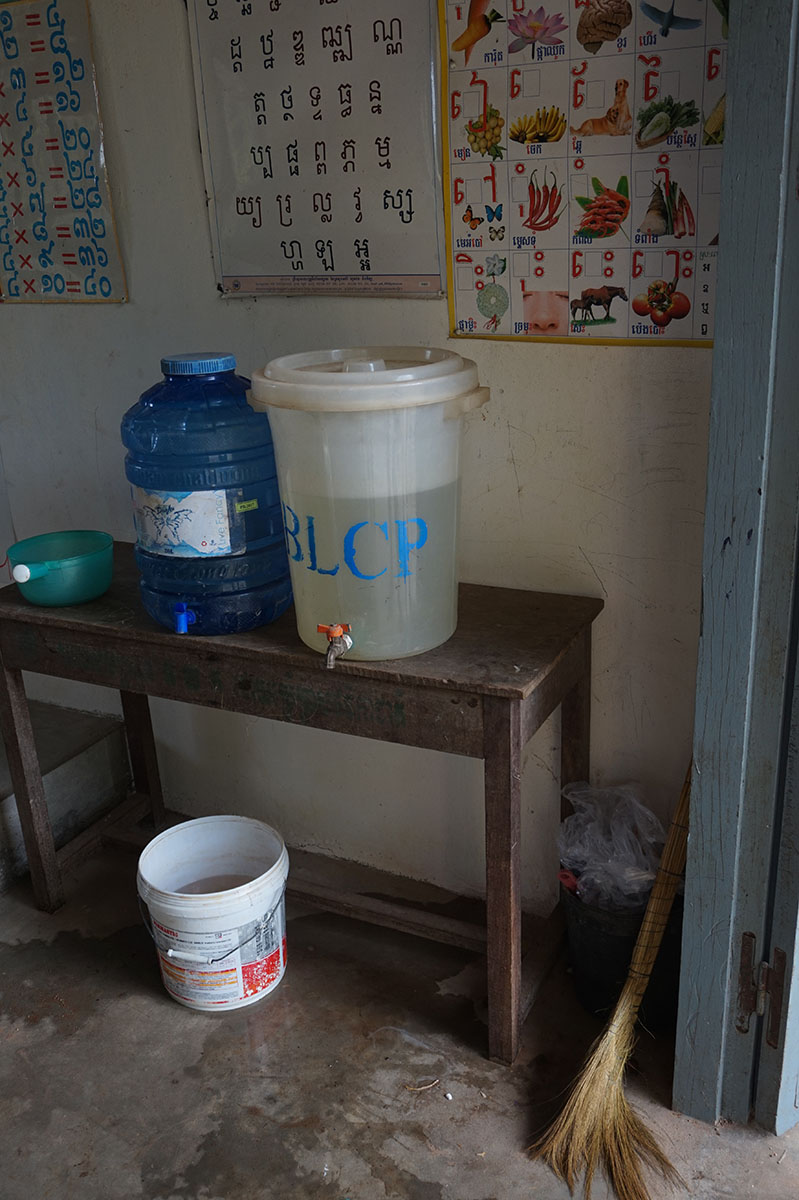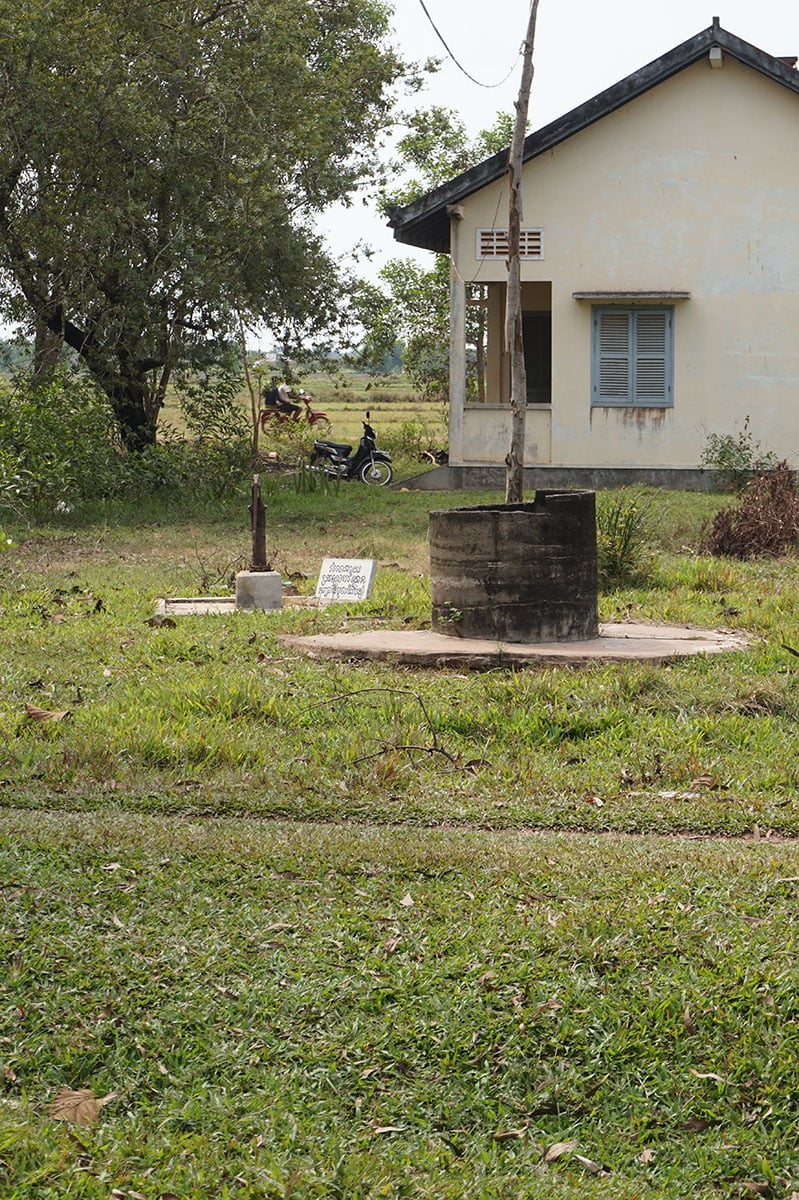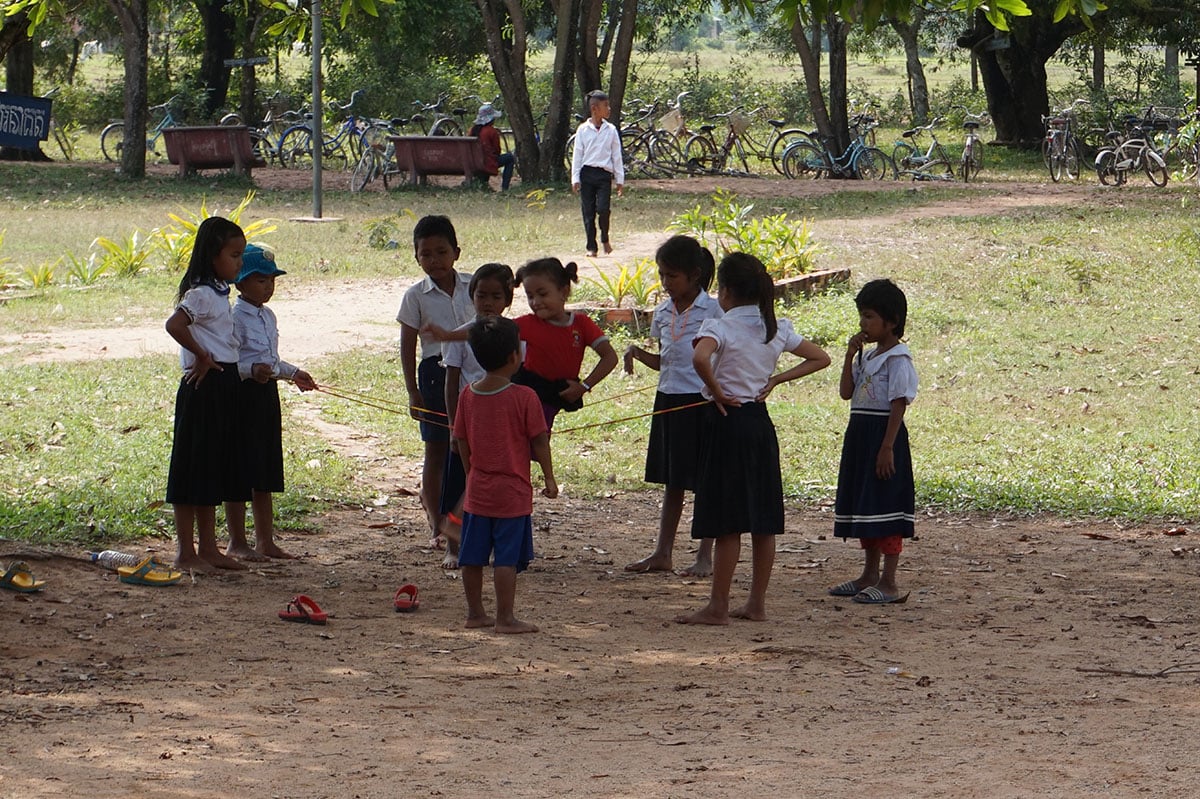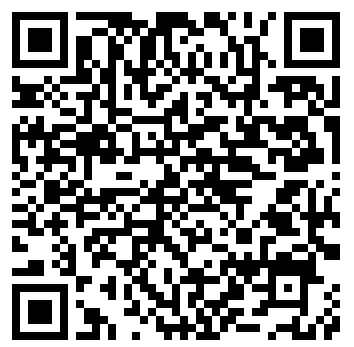Chamka Bey Primary School
School history
Chanka Bey Primary school is located in Damnak Chang’aeur, Kep. It’s 10 km from Kep district capital. The school was built in 2010. There are 182 children attending the school.
State of the school before the conversion
Power supply
Available
Water resources, incl. WaSH
There are 7 RHHs, 4 toilets, 1 well and 1 pond. In the rainy season the school mostly uses rainwater from their RRH for latrine, hand washing, and cleaning school facilities. However, due to the large number of students, rainwater cannot supply enough water for all WASH needs. When rainwater is not enough, the school uses water from a pond 30m from the school. In the dry season, the rainwater is not nearly enough, leaving the school to rely on pumped pond water for most WASH needs.
Comment: The students drink rain water from the RHH. There are no hand washing stations at the school. The children wash their hands from a shared bucket, which is very unsanitary.
Condition of the latrines
The latrines are constructed with concrete and have metal roofs and are all in good structural condition. More care needs to be taken in keeping the latrines clean.
Comment: 1 toilet has to be fixed.
Waste Management
There are garbage bins in each of the classrooms and on the school grounds.
General condition of the school (cleanliness / maintenance)
There are duty rosters for latrine cleaning, RRH care and garbage collection, but it appears that they are little regulated or enforced.
Upgrading the school
Planned Measures
- Hand washing stations: 1 pcs.
The hygienic conditions were improved for 182 pupils by financing the hand washing station.
Emergence and meaningfulness – WaSH (water sanitary hygiene) project
During our trip in January / February 2013, we became aware of the disastrous conditions of a school near Banan. There is no drinking water, no hand washing facility and no toilet. The children are forced to releive themselves in the bushes behind the school. It is not hard to imagine which health dangers emanate from this condition.
When Bong and I visit the school together with our team, we ask the children who would like to have something to drink. About 30% of the small children have some water, bottled in an old plastic bottle, cloudy and unimaginably dirty. When a little girl proudly pulls out her bottle to drink from it, I suddenly feel the need to knock the bottle out of her hands. It brings tears to my face, especially as I myself have a little daughter at home. The idea that she would have to drink this broth and then make her emergency (95% diarrhea) behind the school, all without toilet paper and without the option to wash your hands …. this idea will not leave my mind for days.
We had to work out a plan of how we could change this. Back in Germany, I had the opportunity to present this project to the Rotary Club „Willich“. My listeners quickly realized that with little money, many children can be sustainably helped. The projects are sustainable, effective and almost unbeatable in relation to the budget needed and the quality / quantity of the aid. We are building a pilot project and one of our most successful programs has its origins: WASH.
Today, four years later, in cooperation with the two Austrian organizations „Wasser-für-die-Welt“ and „Last-Hope“, the Rotary Clubs „Willich“ and “Neuss”, we have launched the „moeglichkeitenschenken“ initiative Partner agency „springer f3“ and, of course, our partner organization „Bareebo“ has already converted 21 schools and thus helped around 3,000 children.
Talk to us and become a development worker. We have schools that fit into your budget and you can help there effectively, concretely and sustainably.
Project coordinates: 10.535012, 104.362671
Date: February 28, 2018
Details
Status: Projekt completed
Budget: 575 €
Sponsor: Birthday guests of Horst Kettler
